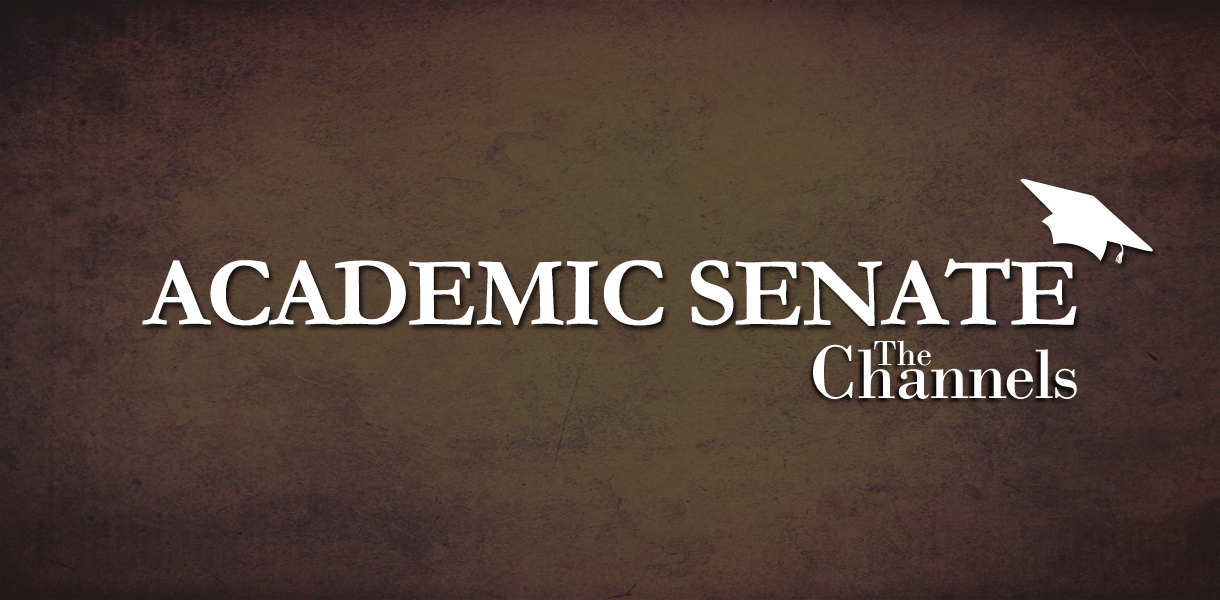The Academic Senate meeting Wednesday covered academic integrity violations, freedom of speech on campus, the governor’s proposal for a fully online college and the OEI Consortium.
Dean of Student Affairs Arturo Rodriguez presented statistics on academic integrity violations reported during the Fall semester. There were 30 total, two of which were repeat violators.
“One of them happened to be I believe their fourth violation. So that ended up being an administrative ‘F’. After consulting with the faculty member, we decided that would be the thing to do,” Rodriguez said.
Teachers can’t fail a student in a course if they catch them cheating—they can only fail them on the assignment they catch them cheating on. Administrators are the ones with the power to fail a student in a course for academic integrity violations.
Multiple members voiced that they and other teachers don’t often report cheating or plagiarism because they have felt not much would happen. However, Rodriguez presented statistics on academic integrity violations so that teachers felt more comfortable reporting violations in the future.
“As the reporting becomes more common, I think there will be more of these second and third offenses… we are going to want to come back with discipline that is appropriate for that and I think that needs to be articulated so that students know what that is,” said Paul Jarrell, vice president of educational programs.
A formal resolution was also finalized opposing Governor Brown’s proposal for a fully online college based on discussion in the Academic Senate’s previous meeting. The Senators unanimously agreed to support the resolution which states that existing community colleges would be better equipped than a brand new school to address the 2.4 million people with a high school diploma and no college degree.
The resolution will be sent to the State Academic Senate and the State Legislator.
The Senate unanimously voted in favor of the revised Board Policy 3900, which takes away our campuses’ previous designations as a non-public forums.
If this revised policy is passed by the Board of Trustees, various forms of freedom of speech such as protests would be allowed in most spaces on campus— with some exceptions due to safety or functionality such as the bridge, classrooms and faculty offices.
Previously, protests and other public demonstrations on Main Campus could only be held in the courtyard on the west side of the student services building, the quad outside the Campus Center and the open grass on West Campus.
By a majority vote the application to join the Online Educational Initiative Consortium passed. Starting in the 2018-2019 school year, this program would allow students enrolled in other state community colleges to take online classes at City College and vice versa without needing to apply to each college separately.














